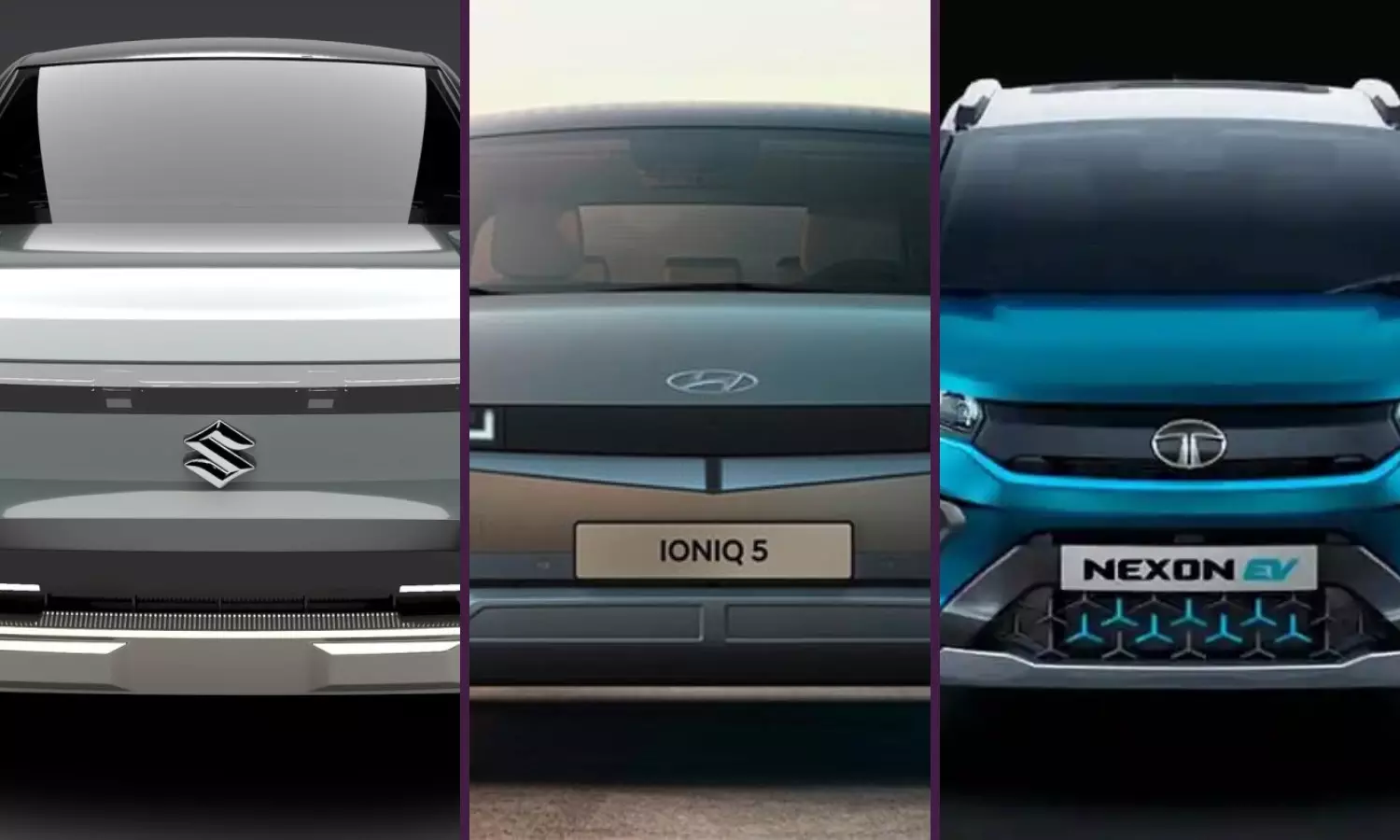India Prepares for the Rise of Electric SUVs

In a significant development in India's automotive industry, several major players are gearing up to launch electric SUVs, marking a pivotal shift towards sustainable mobility. Companies like Tata Motors, Hyundai, Maruti Suzuki, and others have intensified their efforts to capture a burgeoning market increasingly inclined towards electric vehicles (EVs).
Tata Motors, a key player in the Indian automotive sector, is set to unveil its electric SUV, promising advanced features and competitive pricing. The move underscores Tata's commitment to expanding its electric vehicle portfolio, catering to the growing demand for eco-friendly transportation solutions.
Hyundai, another frontrunner in India's EV market, is also slated to introduce its electric SUV. Known for its innovative designs and technology-driven approach, Hyundai aims to capitalize on the popularity of SUVs while promoting sustainable mobility options.
Maruti Suzuki, the country's largest car manufacturer, is not far behind in this race. With plans to launch its electric SUV model, Maruti seeks to leverage its extensive dealership network and brand reputation to make electric vehicles more accessible across India.
Industry experts view these developments as a crucial step towards reducing India's carbon footprint and addressing concerns related to air quality and energy sustainability. The shift towards electric SUVs aligns with global trends favoring cleaner and greener transportation alternatives.
According to recent reports, the Indian government's push for electric mobility through incentives and policy support has encouraged automakers to invest heavily in EV technology. This proactive approach is expected to accelerate the adoption of electric vehicles in the coming years.
In response to market dynamics and evolving consumer preferences, automakers are focusing on enhancing battery technology, range capabilities, and charging infrastructure. These advancements are pivotal in overcoming barriers to widespread EV adoption, such as range anxiety and charging infrastructure availability.
Moreover, the introduction of electric SUVs is anticipated to attract a diverse range of consumers, including urban commuters, adventure enthusiasts, and environmentally conscious buyers. The versatility and performance attributes of SUVs combined with the environmental benefits of electric propulsion make them a compelling choice in today's automotive landscape.
The competitive nature of India's EV market is also fostering innovation and collaboration among automakers, driving the development of indigenous electric vehicle technologies. Companies are increasingly investing in research and development to introduce cutting-edge features that cater to local preferences and driving conditions.
Industry analysts predict that the launch of electric SUVs by Tata, Hyundai, Maruti, and other manufacturers will not only bolster their market share but also pave the way for a sustainable automotive future in India. As consumer awareness and acceptance of EVs continue to grow, these vehicles are poised to play a pivotal role in shaping the next phase of mobility evolution.
Looking ahead, stakeholders emphasize the importance of robust infrastructure development, including charging stations and battery recycling facilities, to support the widespread adoption of electric vehicles. Government initiatives aimed at expanding the EV ecosystem are expected to play a crucial role in shaping the future landscape of India's automotive industry.
In conclusion, the imminent arrival of electric SUVs from Tata, Hyundai, Maruti, and other automakers signifies a monumental shift towards sustainable mobility solutions in India. As these vehicles enter the market, they are poised to redefine the country's automotive landscape, offering consumers a blend of performance, technology, and environmental consciousness. With ongoing advancements and supportive government policies, India is well-positioned to embrace electric vehicles as a cornerstone of its future transportation paradigm.
